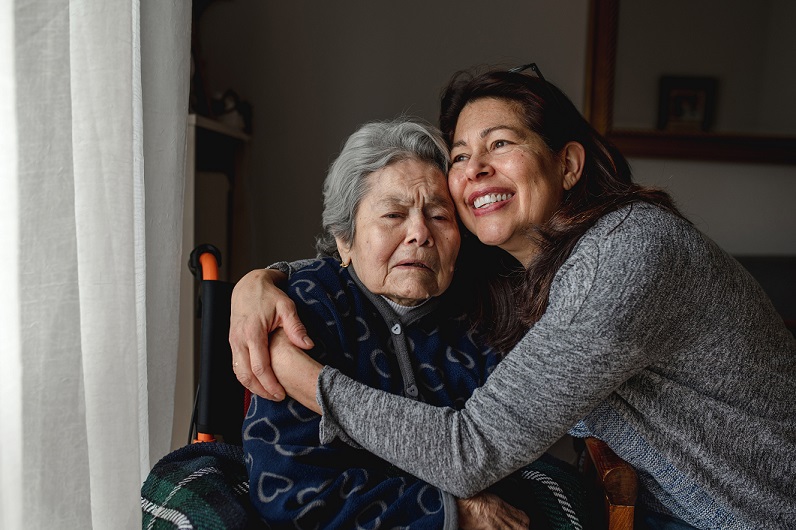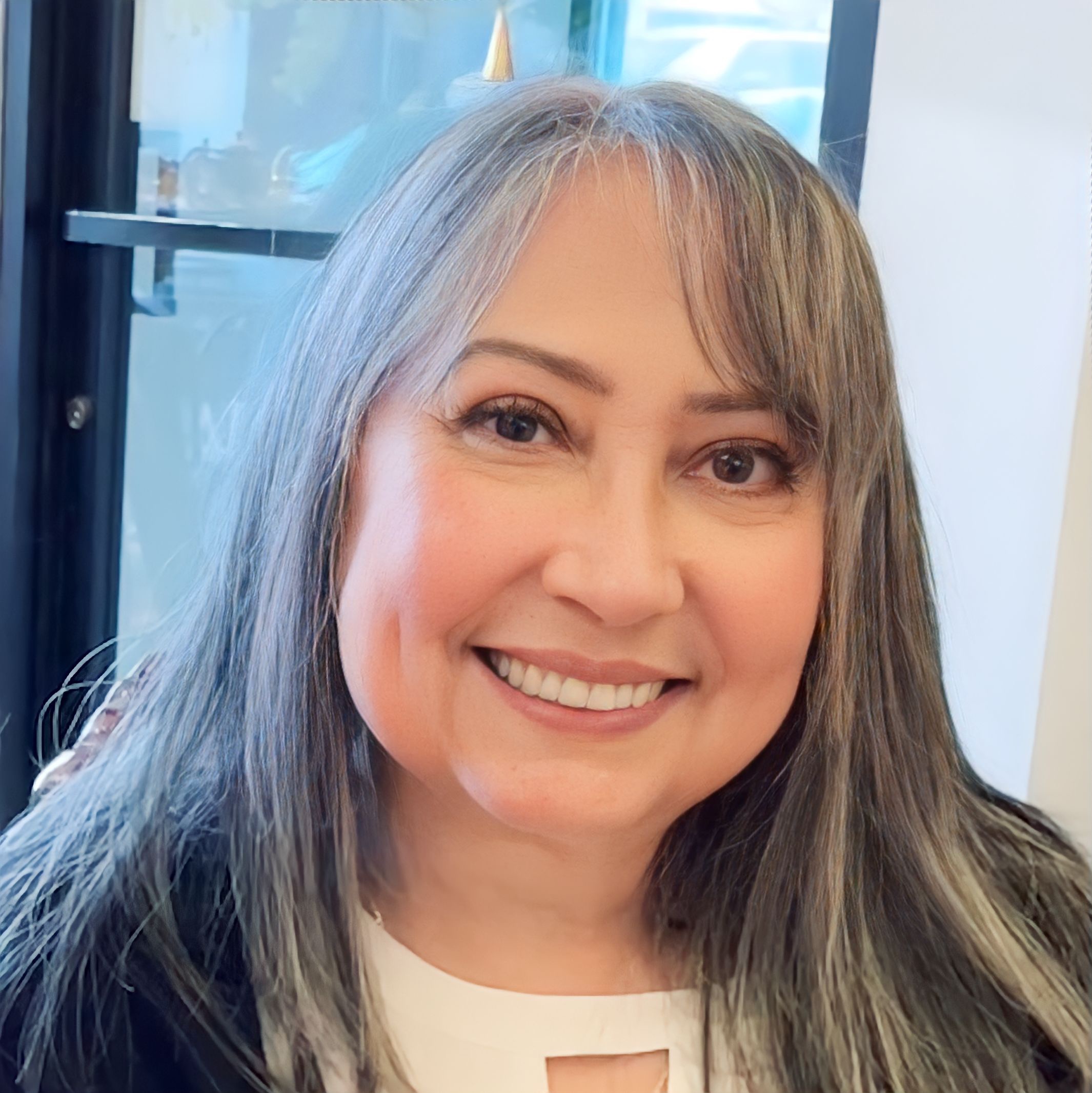For pastors, caring for the spiritual needs of older adult members of their congregations is a sacred task—a relationship of mutuality and blessing between pastor and elder. Among our pastoral colleagues, there are also those who are responsible for providing support and care to older people outside the congregation—their older adult parents.
You may have warm memories of your parents as they were at different seasons in their (and your) lives. You might have cherished pictures of them when they were children themselves, or when they reached milestones in their lives like graduation, marriage, or childbirth. You might remember your parents as the vibrant young adults who taught you to ride a bicycle and tie your shoe, who passed on traditions and took you to church.
Caring for older adult parents is holy work. It can also be a challenge.
Many older adults are able to remain independent, healthy, and productive. A significant number of persons over age 65, however, have health conditions that can negatively impact their overall quality of life.

A 2023 report from the National Council on Aging shows that nearly 95% of adults over age 65 have at least one chronic condition such as diabetes, arthritis, heart disease, or dementia; about 80% have two or more. One in four older adults struggles with behavioral or mental health issues such as depression, anxiety, or substance abuse. Each year, nearly three million have serious falls; every 11 seconds, one is treated in the emergency room; and every 19 minutes, one dies.
How do you take on the responsibility of caring for your older adult loved ones?
Perhaps you’re part of the “sandwich generation,” simultaneously caring for dependent children and older adult parents. Or your children may be grown, and now it’s one of both parents who needs more attention. You may be a senior citizen yourself, with parents who require your care. The kind of care that’s needed can be different depending on what stage of life your parents are in.
Older adults who are in good health or whose chronic conditions are well-managed and who do not need hands-on care may benefit from your practical support, such as helping with errands or driving them to and from appointments. Older adult parents with more severe medical needs may require more, including help with making decisions about living arrangements, medical treatment, and managing finances. Your parent(s) may be safe living at home with the assistance of home health care professionals. If your older loved ones require round-the-clock care, they may need to be placed in a skilled nursing facility. At any stage, you may decide you wish to provide care in your home.
Where do you begin?
Ideally, families should begin conversations around eldercare so that plans that honor the wishes of the older adult parent can be put in place before a crisis arises. These conversations are best had when parents are still able to make their own decisions about their future medical care.
- Advance Care Planning involves discussing and preparing for future decisions about an individual’s medical care should they become seriously ill or unable to communicate their wishes.
- An Advance Directive specifies an individual’s wishes concerning medical treatment in keeping with their beliefs and understandings of quality of life. Advance Directives can include Living Wills that instruct medical personnel how an individual wishes to be treated if they cannot make their own decisions about emergency treatment, and often include instructions such as Do Not Resuscitate (DNR) and Do Not Intubate (DNI) orders. Advance Directives also can include a Durable Power of Attorney for Health Care, a legal document that names a Health Care Proxy who can make health care decisions on behalf of a person who is unable to communicate their decisions. In the case of a couple, the Health Care Proxy is normally a spouse or partner, but it’s also advisable to designate a secondary Health Care Proxy of Proxies, which can include an adult child or children. Your parent(s) may designate you and/or one of your siblings (if any) as either a primary or secondary Health Care Proxy.
If you are a Health Care Proxy for your parent(s), please make sure you provide copies to their health care professionals and health insurance coverage provider. Load a copy on your smartphone so you’ll always have it if and when it’s needed. - Each state has different requirements and forms for preparing Advance Directives. Click here to search and download forms by state. Please be aware that, in the absence of an Advance Directive, the laws of the state in which your parent lives will determine who may make medical decisions on their behalf.
What happens when my parents can no longer manage their finances?
Conversations about money can be awkward, even with family. When it comes to finances, it’s also helpful for you and your older adult loved ones to discuss and plan in advance. Here are some questions to help guide your conversations.
- Are they using Direct Deposit for Social Security and any other pension income? If your parents are still receiving paper checks by mail, work with them to set up Direct Deposit. It not only ensures that benefits will be available more quickly, it also can keep your parent(s) safe from theft or fraud.
- If your parent has been diagnosed with dementia and is in cognitive decline, it became harder for them to write and mail checks for rent, utilities, insurance, and other expenses. What regular expenses do your parents have? Are they paying these bills by check? Help them set up electronic bill pay for recurring expenses. This helps guarantee that payments are made and received on time. It can also be easier to track expenses in real time.
- A Financial Power of Attorney (also known as a General Power of Attorney or POA) gives an appointed person (the “agent”) the power to manage the financial life of an individual (the “principal”) when that person is no longer able to do so. Like a Health Care Power of Attorney, a person may designate a spouse or partner as Financial POA to execute financial transactions on their behalf if they are no longer capable of doing so on their own.
If you are designated as a Financial POA for your parent(s), please make sure you provide copies to their banks, insurance companies, and other financial institutions. Load a copy on your smartphone so it’s always accessible.
Work with your parent(s) to create a list of user names and passwords for all online financial accounts.
Other Questions to Help You Plan Together
- Do your parents have long-term care insurance. What is the extent of their coverage? (This is essential information to have if your parent(s) becomes incapacitated and requires skilled nursing or other long-term care.)
- Are they eligible for government-sponsored assistance, like Medicaid?
- Do your parents have a will? Has it been updated? Where is the document kept? What is the contact information for the attorney?
Why Does Caring for My Parents Feel Overwhelming?
Whether you are caring for your parent in your home or coordinating their care in a medical facility, you are acting in love and care. No one way is right or wrong. Your decisions about their care—whether they were made jointly in advance or if you are making decisions on your own in unexpected circumstances—are made with compassion and dignity. You are doing God’s work.
You may feel at times that it’s more than you can handle, especially if you are also caring for your own family as well as for a congregation. You may even feel guilty for acknowledging your emotions. Remember that what you’re feeling is normal. Bring your vulnerability to God in prayer. Spend time in silence and contemplation. Read. Nap. Be gentle to yourself.
Our lived experiences not only help us grow and deepen in faith and spirituality, they can also give us new insights and sensitivity to those with whom we minister. How will your experience of caregiving influence the way you provide pastoral care to the elders and their caregivers in your congregation? How can members of the congregation support one another when they, too, are called to be caregivers to their beloved elders?
Be open to the leading of the One who is accompanying you through this, and in all, of your journeys.
Additional Resources:
- CaringInfo, a program of the National Hospice and Palliative Care Organization, has many helpful resources on its website covering topics such as Advance Directives, Caregiving, Coping with Grief and Loss, Financial Matters, Finding Care Outside of the Home, Talking About Serious Illness and Care, and Your Rights (for both patients and caregivers).

